Mountain Dew Has Been Banned From 30 Countires and the Reason Why is Frightening
As one of the most popular sodas in the United States, Mountain Dew brings in $7 billion annually. While Americans can’t get enough of the soft drink, Mountain Dew has been banned in numerous countries, including Japan and the European Union—and the reason why may surprise you.
Mountain Dew contains brominated vegetable oil, also known as BVO for short. This harmful ingredient has been linked to a number of health concerns such as reproductive and behavioral problems, organ system damage, schizophrenia, and hearing loss. In total, 100 countries have outlawed the sale of Mountain Dew. Similarly, many other foods popular in the US have been banned in other parts of the world.
Farm-Raised Salmon Banned in Two Countries
Salmon is a food commonly consumed in the US as well as in other countries. This fish is promoted as a healthy food choice and is often recommended by nutritionists.
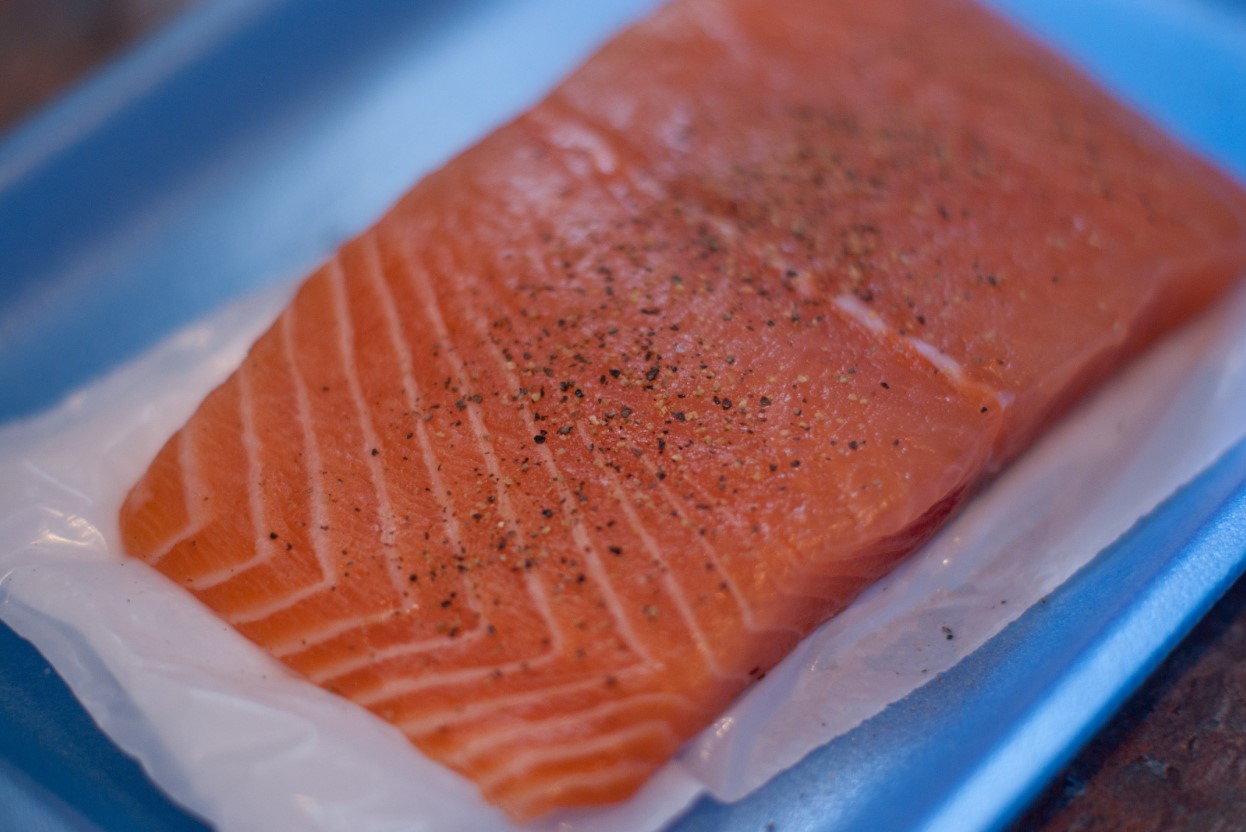
Source: Wikipedia Commons
In fact, farm-raised salmon is said to be packed with nutrients such as omega-3 fatty acids. While salmon does have a lot of nutritional value, the farm-raised salmon in America are fed a carotenoid called astaxanthin to give them their signature coral hue. Farm-raised salmon containing synthetic astaxanthin are banned in Australia and New Zealand.
Chicken That Has Been Cleansed in Chlorine is Off-Limits
Chicken is another prominent meal choice in America. From chicken nuggets, wings, rotisserie chicken and more, Americans are huge fans of this versatile bird. However, chicken can also spread diseases such as salmonella and E. coli if not handled properly.
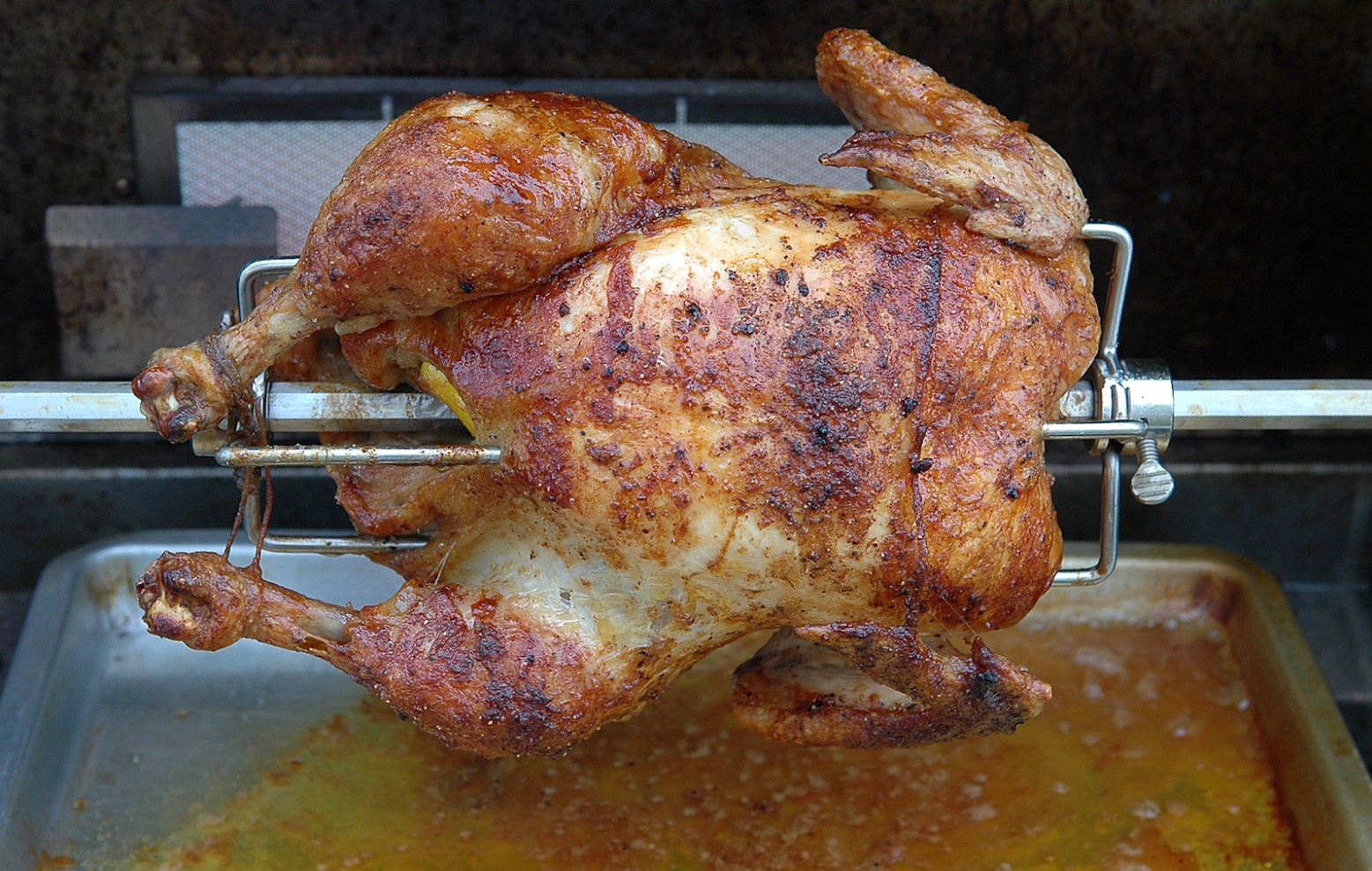
Source: Wikimedia Commons
Chicken produced in the US gets washed in chlorine to prevent these illnesses from occurring. Unfortunately, chlorine isn’t exactly something that should be consumed even in trace amounts. For that reason, the United Kingdom and the European Union have forbidden the sale of chicken due to “unsanitary” farming methods.
Little Debbie Swiss Rolls Containing Dangerous Dyes
Little Debbie Swiss Rolls are an American classic. The chocolate dessert cakes have been sold in the US since 1964, but Little Debbie Swiss Rolls contain Yellow 5 and Red 40—two hazardous food dyes that can lead to a variety of health problems.
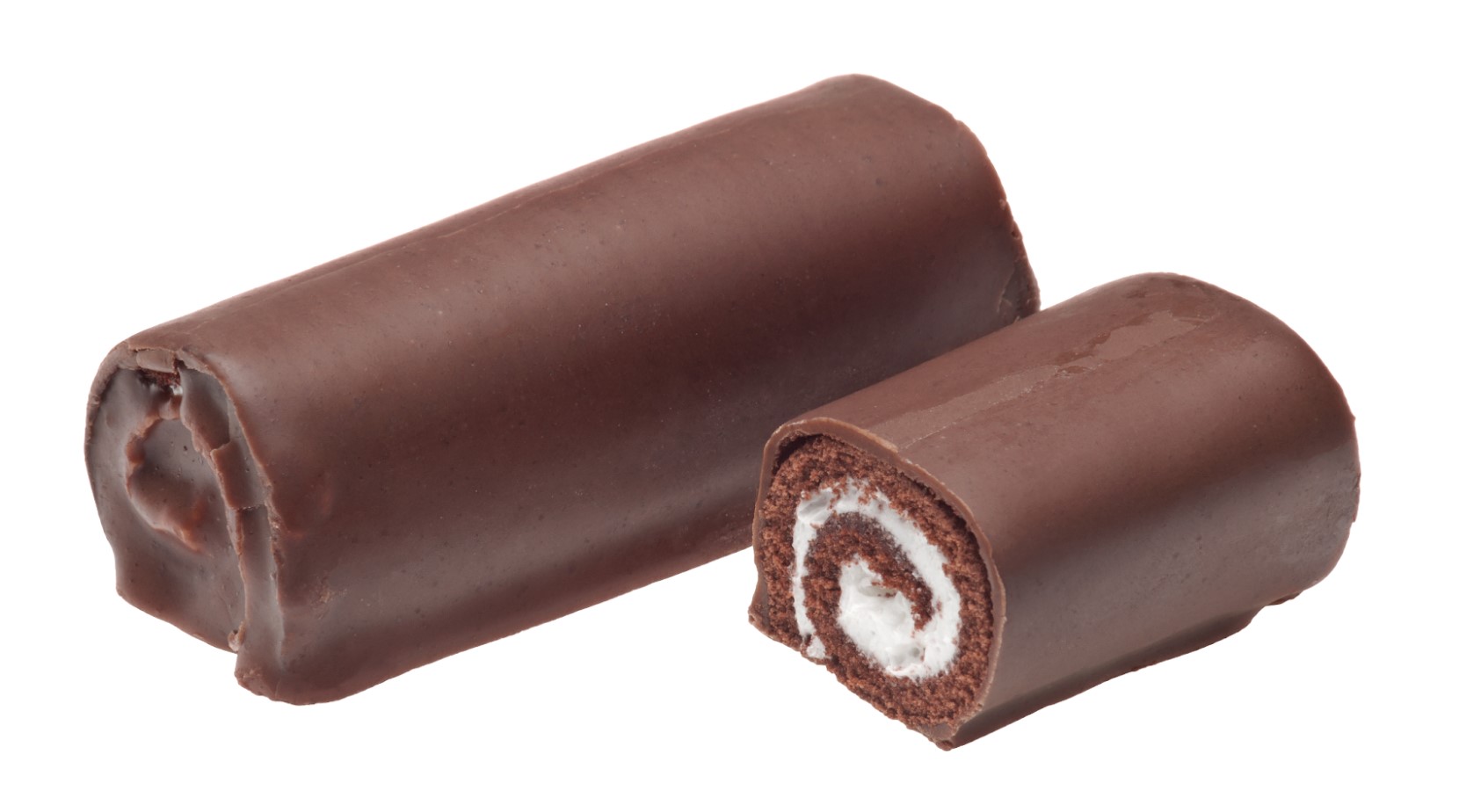
Source: Wikimedia Commons
While the European Union as a whole hasn’t banned them, it requires the pre-packaged snack to come with a warning label to inform parents of the adverse effects the ingredients can have on children. On the other hand, Norway and Austria have completely blocked the item from being sold.
American Cereals With Carcinogenic Additives
It’s no secret that many American cereals aren’t actually a healthy breakfast choice.
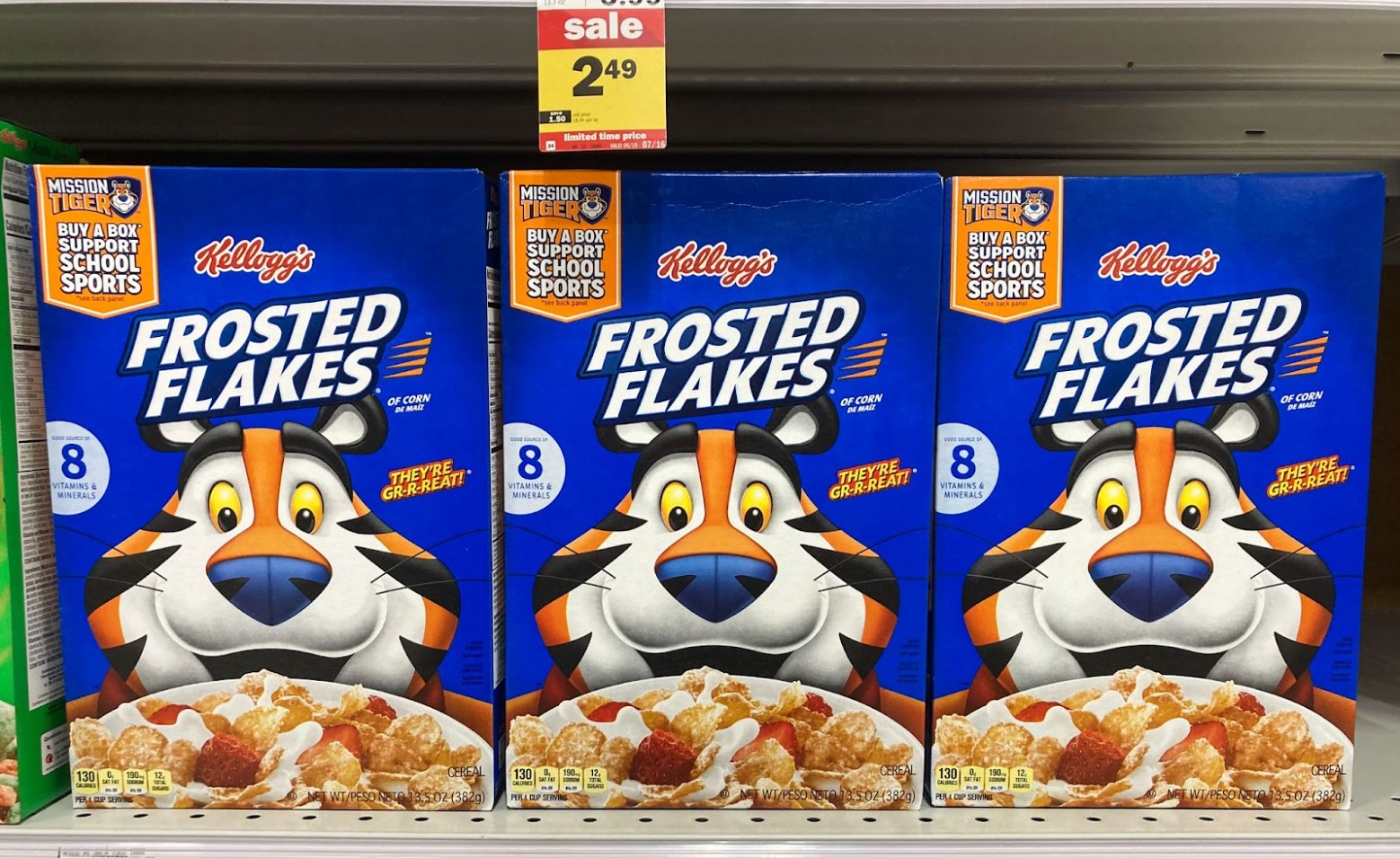
Source: Bill Pugliano/Getty Images
Cereals like Frosted Flakes, Honey Bunches of Oats, and Rice Krispies are not only chocked full of added sugars and preservatives, but they also contain a human-made chemical called butylated hydroxytoluene, better known as BHT. This flavor enhancer is responsible for making the cereal taste good, but it also has a host of carcinogenic properties. Because of BHT, these cereals are not allowed to be sold in Japan and the European Union.
Coffee-Mate Containing Restricted Trans Fats
Coffee-Mate is a non-dairy creamer produced by Nestlé. While the brand promotes Coffee-Mate as being lactose and cholesterol-free, it fails to mention that it’s loaded with trans fats like soybean and cottonseed oil.
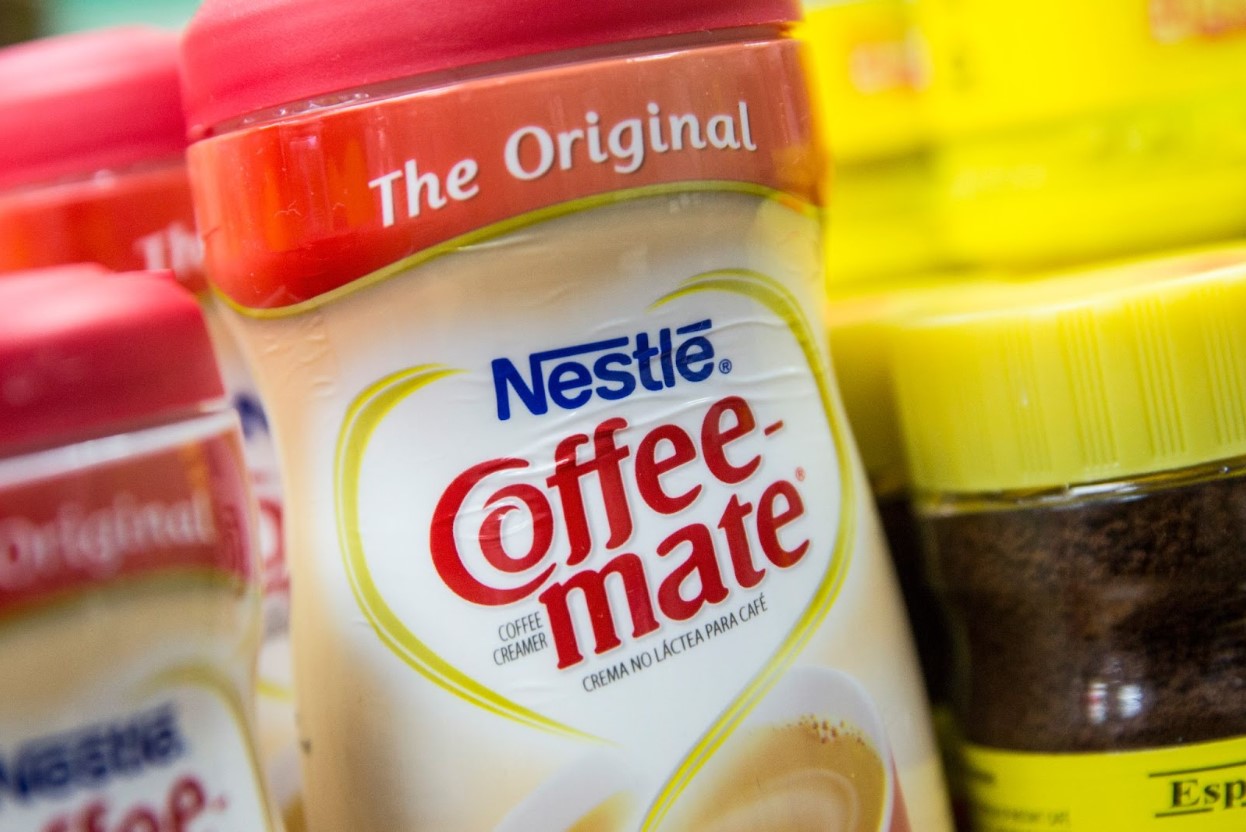
Source: Andrew Burton/Getty Images
These ingredients are linked to heart disease and were even banned from consumption in the US in 2018. Coffee-Mate may be found in many households and office buildings across the country, but you certainly won’t find it in Switzerland, Austria, Hungary, Iceland, Norway, and Denmark.
Stove Top Stuffing Banned in Several Countries
Stuffing is a traditional dish that is widely consumed every year on special occasions such as Thanksgiving. For many, Stove Top stuffing is an essential item to create the perfect family feast. Not only does it taste good, it can also be cooked in five minutes.
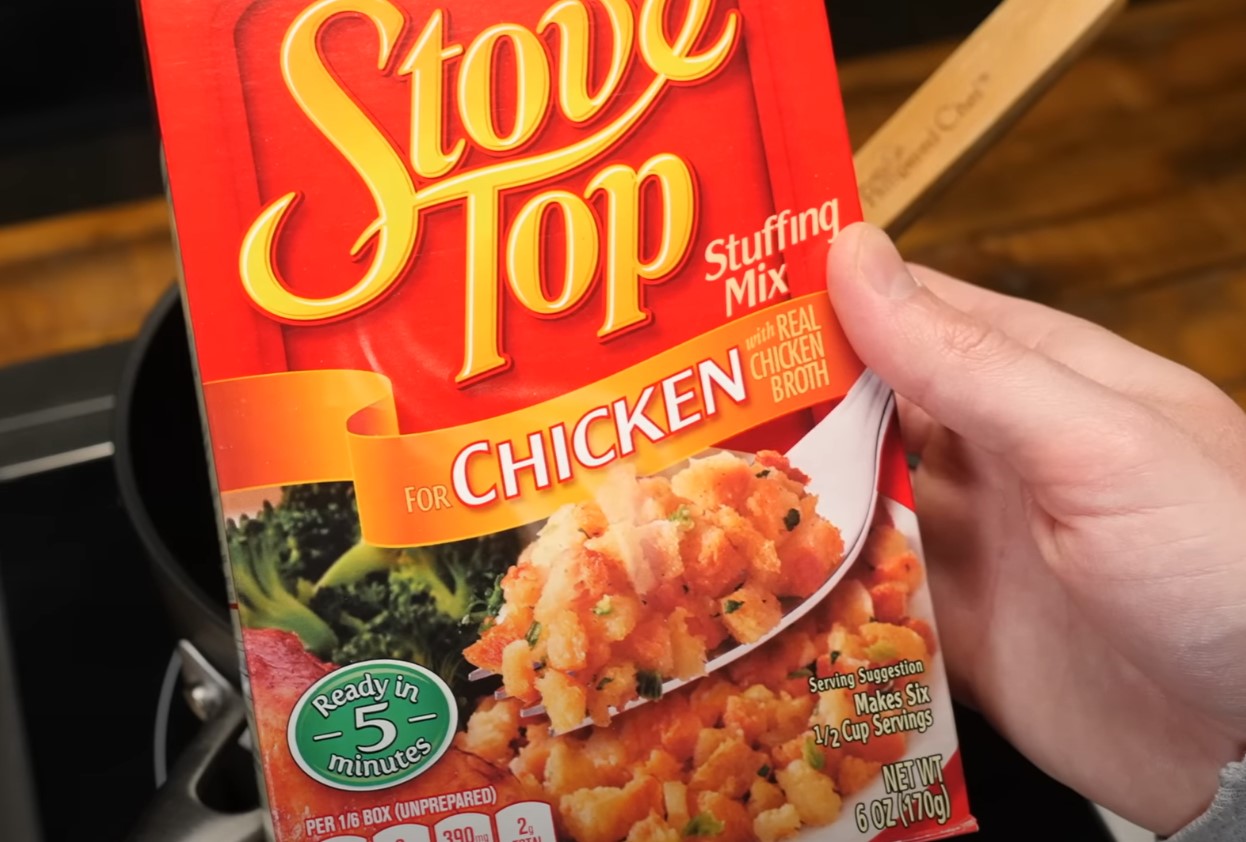
Source: Casual Cooking/YouTube
However, like many other pre-packaged products, this popular Kraft item contains the preservatives BHA and BHT. Studies have shown that these additives may be carcinogens and can cause blood clotting. BHA and BHT are banned in the United Kingdom, Japan, and certain European countries, meaning Stove Top definitely won’t be served in those places.
Are Skittles Tasty or Toxic?
Skittles are a beloved treat for children and adults alike. The colorful candy was first produced in 1974 in the United Kingdom and has become one of the best-selling candies of all time. However, Skittles contain several food dyes including Yellow 5, Yellow 66, and Red 40.
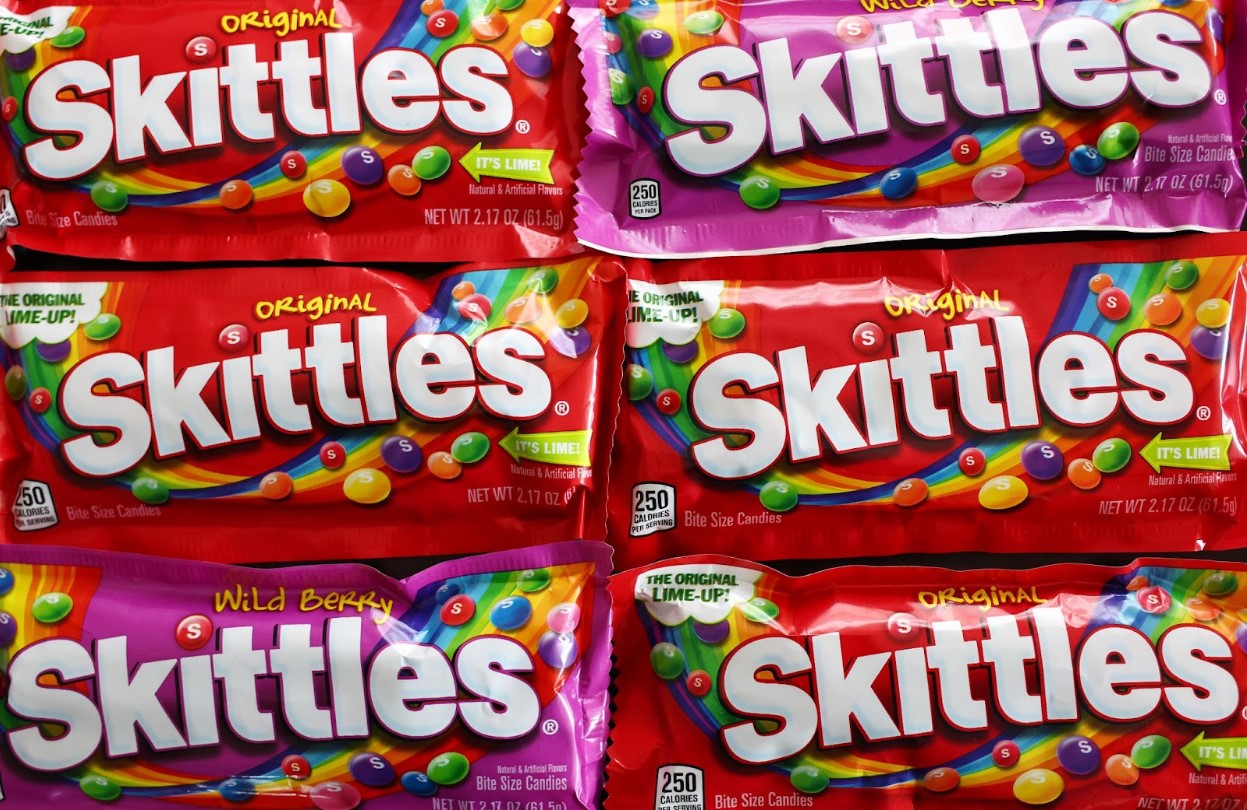
Source: Mario Tama/Getty Images
These dyes are controversial for their adverse effects on young children and have since been banned in Norway and Austria. The European Union insists that foods containing these dyes come equipped with a warning label. Skittles’ ingredients have caused such a commotion that even the state of California came close to banning them before ultimately deciding that four harmful additives must be removed instead.
You Can’t Buy Gatorade in Certain Countries
Gatorade was invented in 1965 by a team of scientists who set out to produce a sports drink with the ability to quench even an athlete’s thirst. The beverage is easily one of the most recognizable drinks in America.
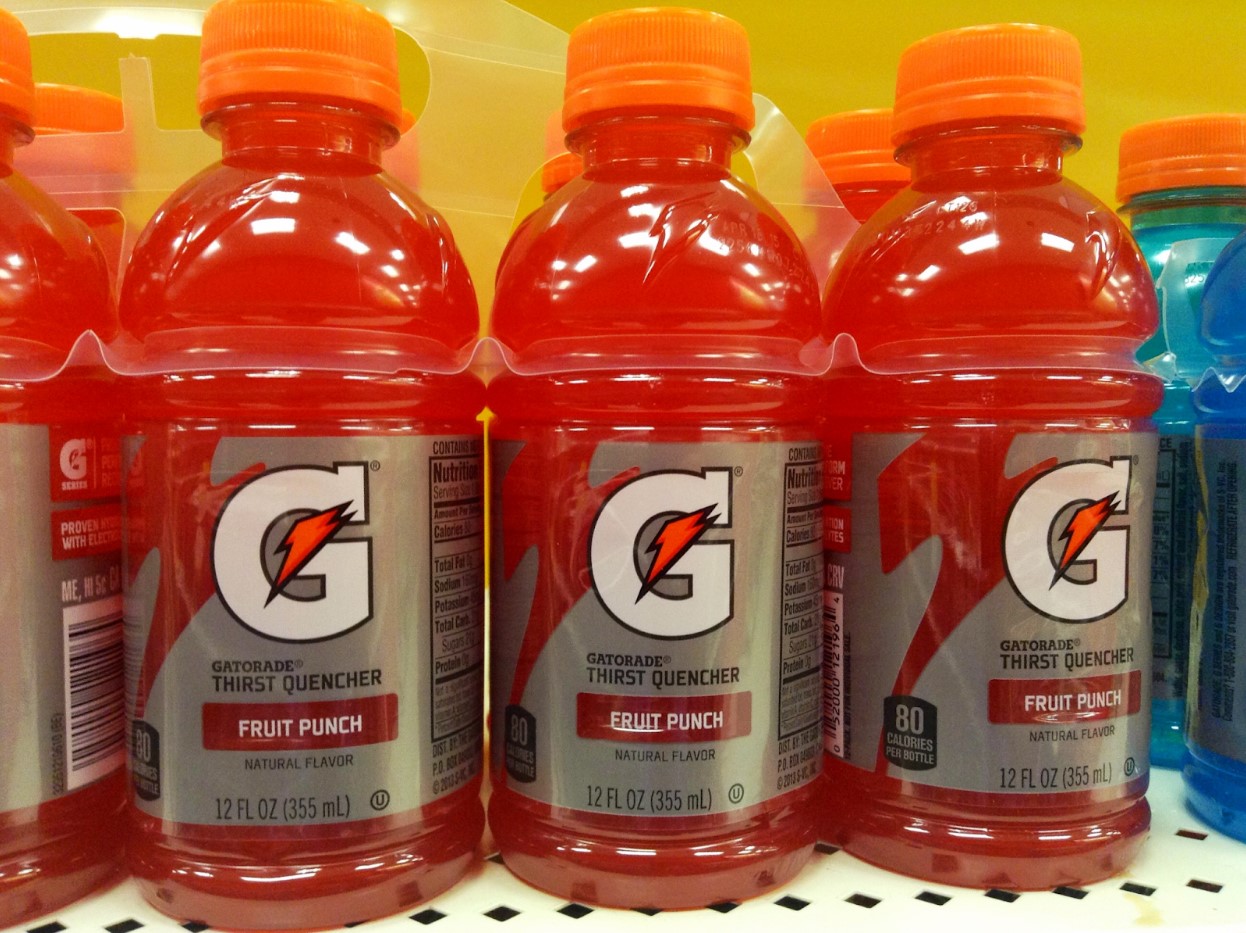
Source: Wikipedia
Gatorade is the official sports drink of virtually every American professional sports organization including the NFL, NBA, and MLB. However, although the beverage contains a hearty dose of electrolytes, Gatorade also is made with Yellow 5 and Yellow 6. Artificial colors such as these are limited in the European Union and they are entirely banned in Norway and Austria.
Ritz Crackers Are a Restricted Item
Ritz Crackers have been sold in American markets since 1934 and have since become the leading cracker brand in the country.
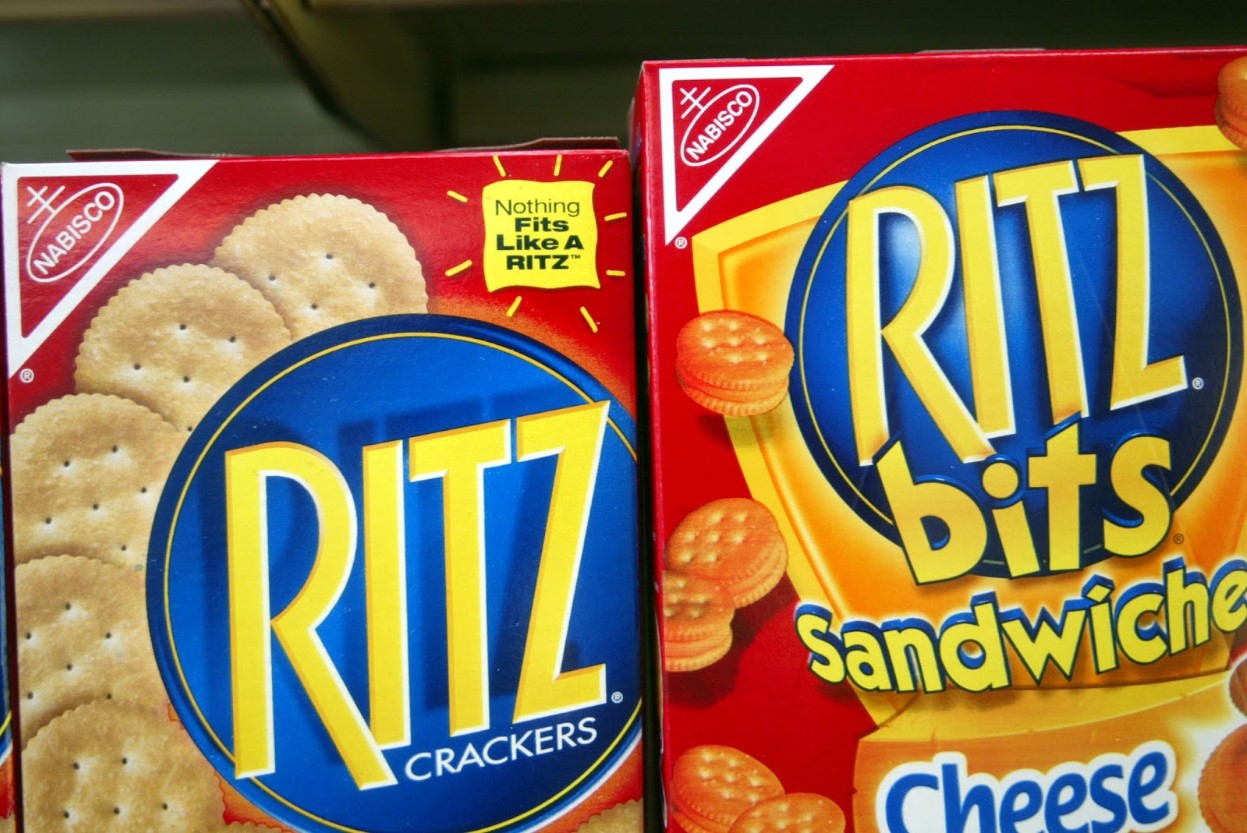
Source: Joe Raedle/Getty Images
Despite the product’s status as a household favorite for decades, Ritz Crackers won’t be found in Switzerland, Austria, Hungary, Iceland, Norway, and Denmark. This is because they are made with partially hydrogenated oils (which contain trans fats) that are either banned or limited in many countries.
Betty Crocker Fudge Brownies Available on Limited Basis
There’s nothing like biting into a delicious homemade brownie, and boxed baking kits have simplified the time it takes to create such a delicacy.
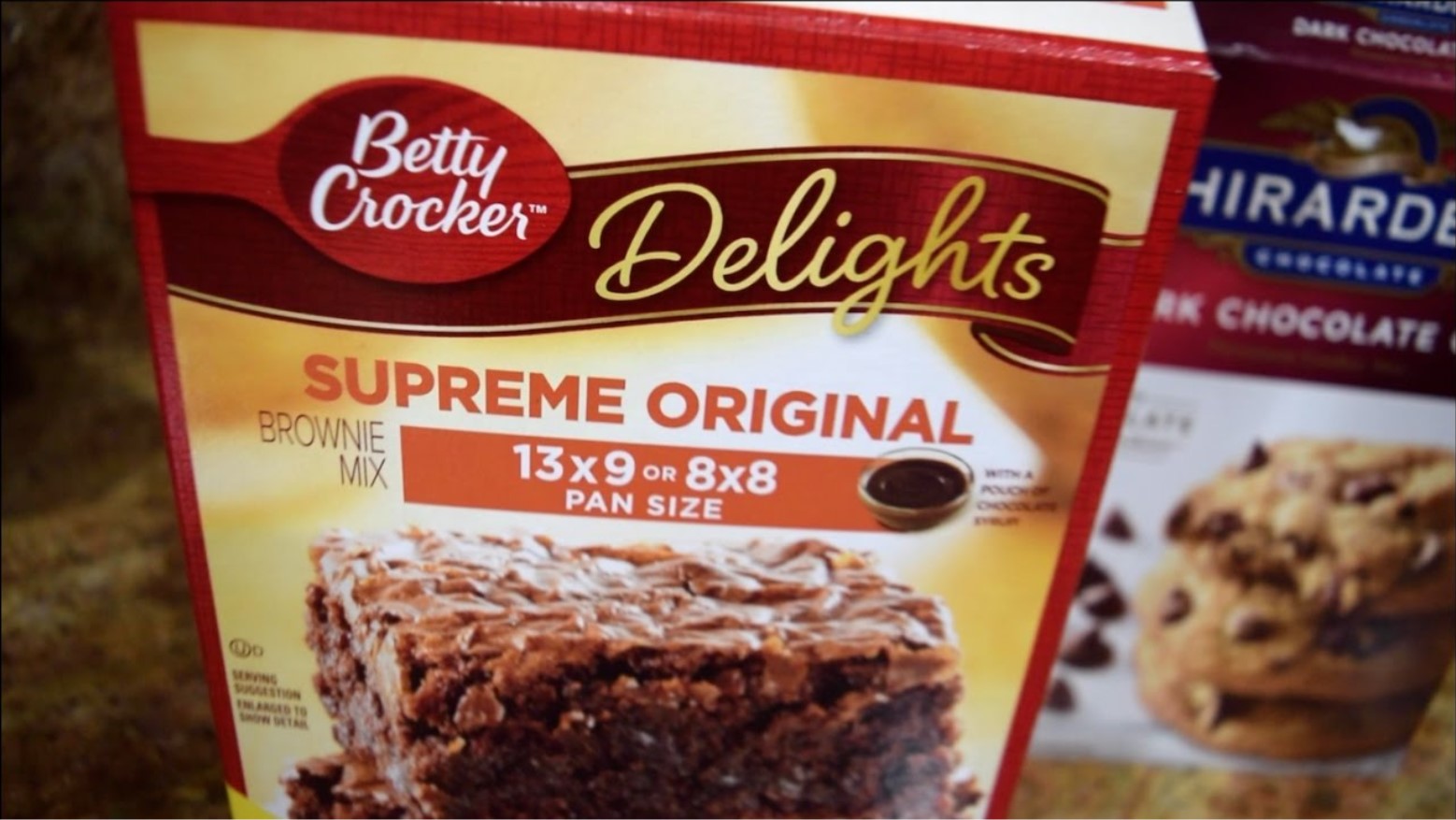
Source: gisy143/YouTube
The Betty Crocker Fudge Brownies mix is easy, affordable, and downright delicious. What more could you ask for? For starters, several countries have asked for foods not to contain trans fats in the form of partially hydrogenated oils. Betty Crocker’s brownie mix is full of trans fats that are regulated in Switzerland, Austria, Hungary, Iceland, Norway, and Denmark.
Pop-Tarts Are Partially Prohibited
Pop-Tarts come in handy for a quick breakfast bite, but they are not as appreciated in other countries as they are in America.
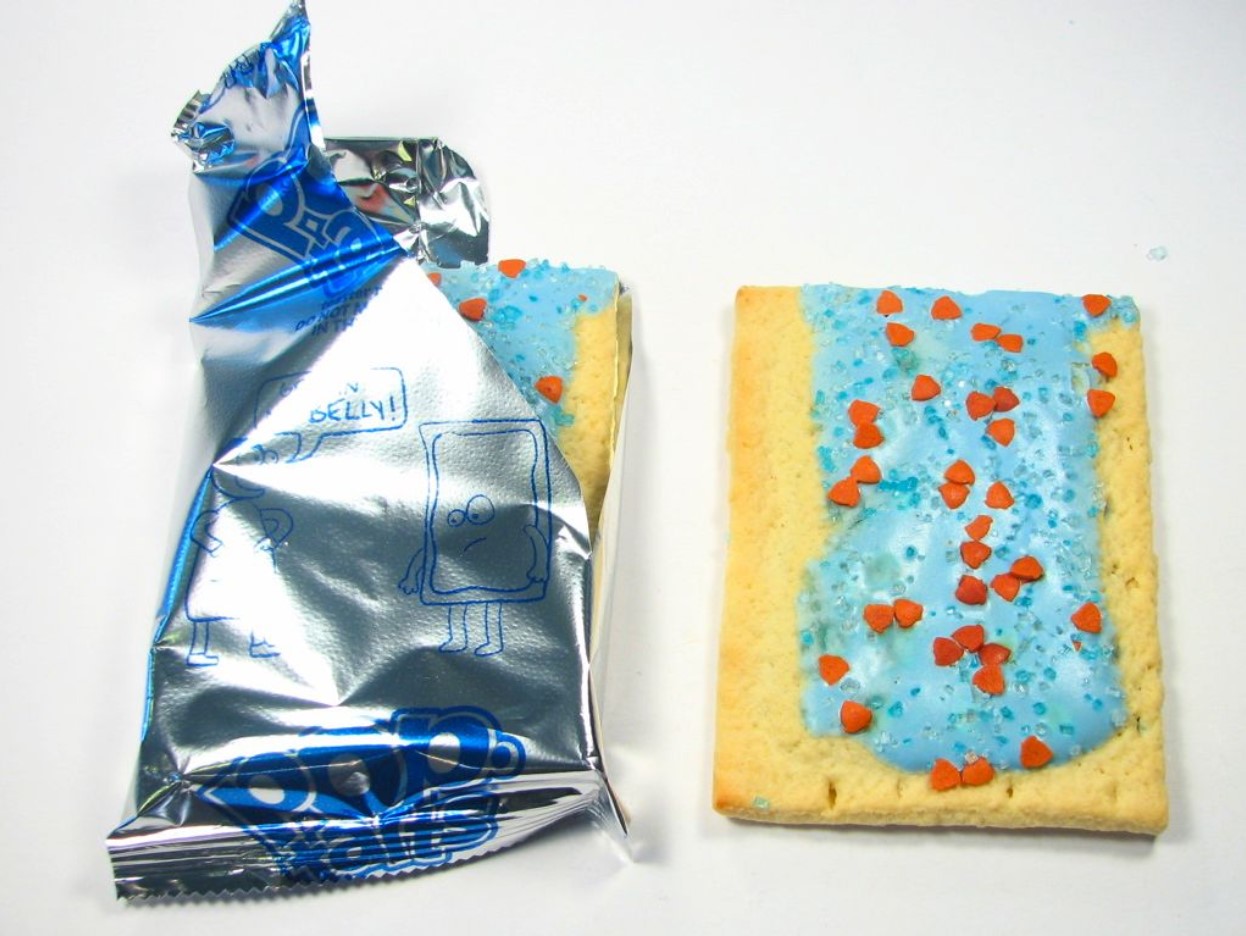
Source: Wikimedia Commons
The European Union has partially banned the consumption of Pop-Tarts due to the hazardous ingredients in them. Yellow 5, Yellow 6, and Red 40 can all be found on the label of any Pop-Tarts box, meaning that they must come with a warning label to let consumers know their potential dangers.
